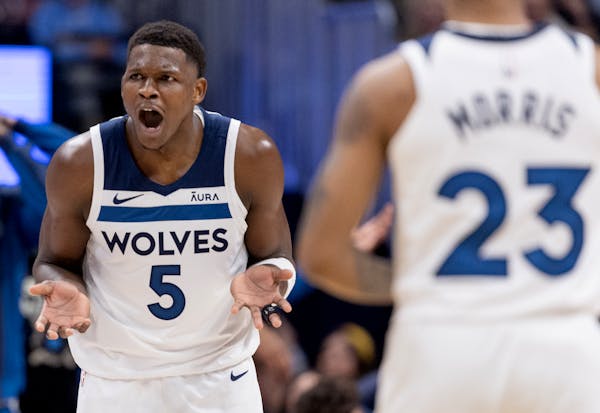Last month during a radio interview at TwinsFest, a fan had a question for Twins CEO Jim Pohlad: Why don't you tell General Manager Bill Smith to sign Joe Mauer to a contract extension?
"We all tell [Smith] that," Pohlad said Monday, during a wide-ranging interview with the team's beat writers at Target Field. "We're all driven from that because we want Joe Mauer as a part of the Minnesota Twins."
Mauer, 26, is entering the final season of his four-year, $33 million deal. How confident is Pohlad that the Twins will keep Mauer?
"We basically gave our word [to Mauer and his agent] that we weren't going to talk about the negotiations," Pohlad said, "and we intend to honor that."
Speaking in general terms and not specifically about any player, Pohlad did offer a few clues. He said the Twins are committed to avoiding deferred compensation but said they aren't opposed to signing a player for longer than six years.
Last week, WCCO-TV reported the Twins and Mauer had reached preliminary agreement on a 10-year extension, though that report was denied by several people close to the negotiations.
Right now, Justin Morneau's six-year, $80 million contract signed in January of 2008 is the longest in team history.
"I don't think that six [years] is a magic number in any situation," Pohlad said. "Each deal is different. It's always a function of term and dollars per year, but total value is what drives it. We do not have a term policy."
Since Mauer is expected to command a salary worth at least $20 million per year, there are concerns about the team's ability to pay Mauer as well as a championship-caliber supporting cast.
One solution would be deferring some of Mauer's salary. The Seattle Mariners did this with Ichiro Suzuki in 2007, for example. Of his five-year, $90 million deal, $25 million was deferred until Suzuki's retirement, at 5.5 percent interest.
In 2000, the Cincinnati Reds traded for hometown hero Ken Griffey Jr., then signed him to a nine-year, $116.5 million contract. To do it, they deferred $57.5 million of his salary at 4 percent interest.
The Reds started making those deferred payments last year and will be on the hook through 2024. Meanwhile, they've had nine consecutive losing seasons and haven't spent more than $75 million on payroll, despite opening a new ballpark in 2003.
"There's a ton of real-life examples of that kind of thinking [on deferred payments]," Pohlad said. "It's either going to be somebody else's problem, or we'll worry about that later. Eventually you've got to worry about it, and at that point, it affects your current operation. So it's really not a good thing.
"You've got to pay the money no matter what, you might as well do it while a player is playing for you."
After opening last year with a $65 million payroll, the Twins are scheduled to be at $96 million in April, when they open Target Field. Besides re-signing veteran pitcher Carl Pavano, the Twins have traded for shortstop J.J. Hardy, and signed free agents Jim Thome and Orlando Hudson. That foursome will combine to make $18.6 million this year.
The team's season ticket base has risen from 11,000 full-season equivalents last year to more than 19,500 this year, team president Dave St. Peter said. Once inside the new ballpark, however, the team's slice of baseball's revenue sharing pie will shrink.
How long can the team sustain payrolls above $90 million?
"It's all a function of our revenue," Pohlad said. "We try to keep [the payroll] within 50 percent of our revenue range. So model-wise, it would indicate that it's sustainable.
"We're not going to spend the money just to spend the money, though. It wouldn't hurt if it dropped below [$90 million], in my opinion, occasionally, but we're going to try to put the best team on the field [in] the most prudent financial way.
"I think we're getting, on paper at least, our money's worth."
Pohlad said he's heard good things about the players the Twins have added. He said the team traded away his favorite player, however, in Carlos Gomez. The Twins shipped Gomez to Milwaukee for Hardy in November.
It was another example of the way the Pohlad family has trusted the Twins' baseball people to make their own baseball decisions. Pohlad, who said he and his brothers are basically fans, insisted he is not involved in the Mauer negotiations, though Smith and St. Peter obviously keep him informed and will need him to sign off eventually on the terms of the contract.
Considering the money being spent this year, will Pohlad be disappointed with another first-round playoff exit?
"I think just getting to the postseason is so exciting and so important," he said. "Once you get to the postseason, anything can happen, but nothing's going to happen if you don't get there."
Last year, the Twins went 0-10 against the Yankees, including a three-game sweep in the Division Series.
"I hope we're not a team that's intimidated by the Yankees," Pohlad said. "I don't believe we are. I personally am not intimidated by the Yankees or the Yankee organization. I just hope to every year get better, so whoever we face, we'll advance."
The Twins have won five AL Central titles since 2002, but won only one playoff series over that span.
"I don't think we're at peak yet," Pohlad said. "The core group of players are still very young, and we've got a lot of good years, so I think the future is very strong, and we will advance past the first round of the playoffs, into the World Series, into the White House."

Twins win 12th in a row, longest winning streak in 33 years
Bruins taking lessons, sense of fight into 2nd-round matchup with Panthers

Two words about Game 1's fourth quarter: Naz Reid

